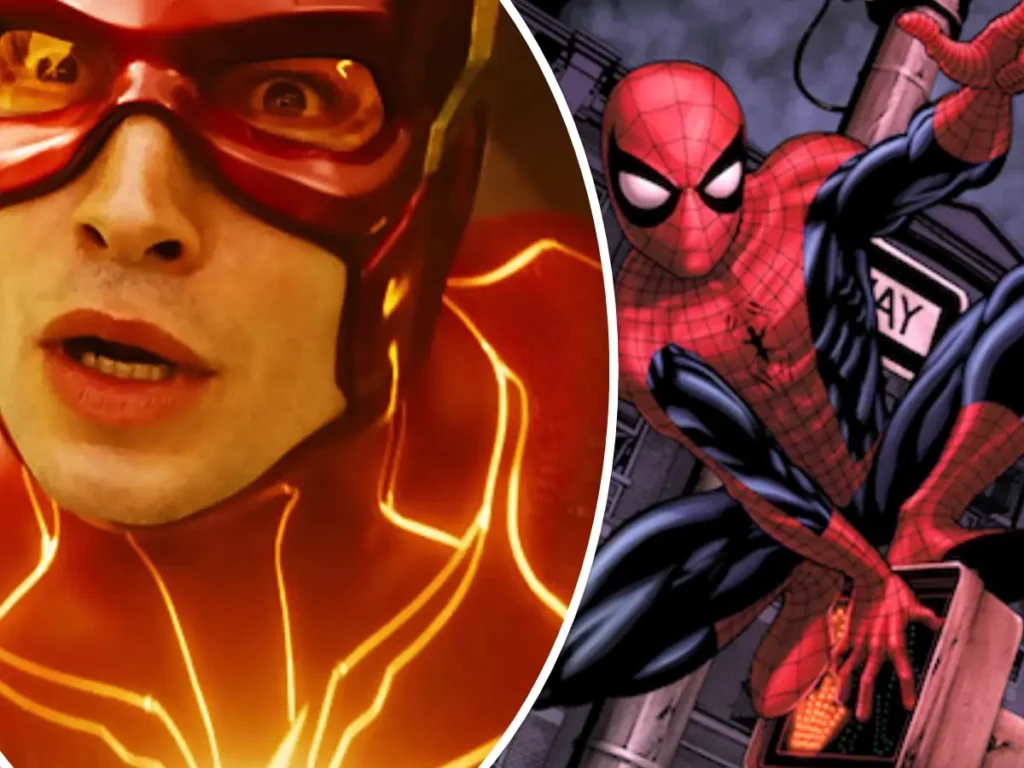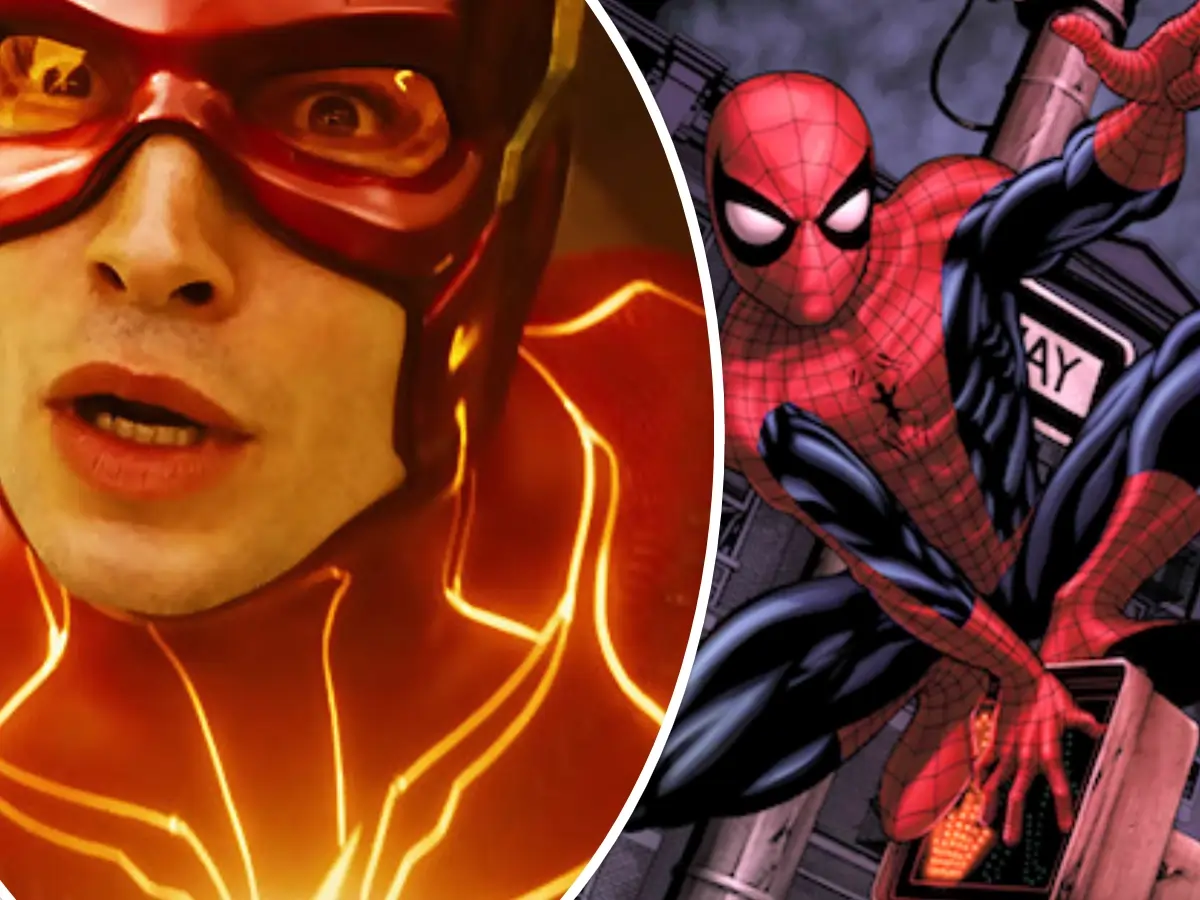SPOILER ALERT!
WARNING: THE FOLLOWING ARTICLE CONTAINS MASSIVE SPOILERS FOR
SPIDER-MAN: ACROSS THE SPIDER-VERSE

In This Article:
Somebody’s Gotta Die, Right?
Superheroes are born out of tragedy, a desire to either atone for past mistakes or to protect others from the suffering that they’ve endured. That genre convention has been clear for years to comic readers and, lately, to movie viewers as well. Somebody’s gotta die, right?
Wrong.
Not only wrong, but very wrong. That’s the message of the brilliant Spider-Man: Across the Spider-Verse.

Tragedy as Superhero Convention
I could list countless examples of the death of someone close to a person who in response takes up the lonely superhero life, but I’ll stick to a couple of recent ones.
Since we’re talking about Spider-Men, let’s take the original Peter Parker. By now, the general public is aware of his origin: that Peter let a robber escape, a criminal who later killed his beloved Uncle Ben. Thus, he learned that “With great power comes great responsibility.” In the most recent live-action Spider-Man movie, Spider-Man: No Way Home, Peter’s Aunt May is killed and Peter allows everyone’s memory of his existence to be erased to preserve the multiverse. In the end, Peter is alone, without friends or family, but, of course, dedicated to the superhero life.
Going Back In Time To Unsave Someone?
The Flash movie that is releasing this month is based upon the comic story Flashpoint.
In the comic story, Barry Allen goes back in time, prevents his mother’s murder, and the universe is shattered. Basically, everything is awful. Eventually, Barry must go back in time yet again and let his mother die.
I’ve always hated that story. It says to me that heroes decide to do good things because of tragedy. (It also requires the death of a woman, Nora Allen, who has little say in her own fate and is just a prop for the story’s themes. But I digress.)
Besides, for the bulk of his publication lifetime, Barry Allen was a nerdy police scientist who was hit by a bolt of lightning, received superspeed, and decided to fight crime. He was a family man, a loving husband to his wife, Iris, and a mentor to his nephew, Wally West, who later succeeded him as Flash. Barry died heroically in Crisis on Infinite Earths, helping to save the universe. A life well-lived and the comics moved onto depicting Wally’s adventures. (Wally is the Flash from the popular Justice League and Justice League Unlimited animated series.)
Until DC decided to bring Barry back by sidelining Wally and by tossing in the backstory of a murdered mother and a father unfairly sent to jail for that murder. Flashpoint established that he could never save his mother and The Flash movie looks to be another confirmation that canon must be preserved and someone must die.
Spider-Man: Across the Spider-Verse Rejects the Premise
Spider-Man: Across the Spider-Verse serves up a heap of struggling heroes, primarily Gwen Stacy and Miles Morales. Gwen’s father is hunting her for a crime she didn’t commit. She can’t confide in any friends because that will put their lives in danger. She sees no solution but to walk away from the people she loves. Miles, too, is becoming further estranged from his parents because of keeping his secret. He worries they won’t love him if he tells them he’s Spider-Man.
Things look bleak personally for them until Gwen breaks the rules and visits Miles. From there, the story shifts. Halfway through Spider-Man: Across the Spider-Verse, I winced, worried the story was leading to the same conclusion as Flashpoint: someone must die in order for the multiverse and canon to be preserved. Miles is faced with the choice of letting his father die or letting an entire universe be destroyed. All the Spider-Men across the multiverse insist that tragedy is the only way, that this was the core story, this is canon, and it’s inevitable for the universe to remain whole.
Miles is told he’s an anomaly, a mistake, that he should never have existed. Miguel, the Spider-Man in charge of preserving the multiverse, spins a tale of how he once interfered with “canon” and, as a result, the entire world was destroyed, including his loved ones. In other words, he’d tried to avoid tragedy, something worse happened, and it was decided that canon could not be broken.
If you read and watch enough superhero stories, you might conclude Miguel is correct. After all, tragedy seems baked into the genre. I’ll not detail all the numerous comic stories but let’s just say a hero who decides to help because it’s the right thing to do is rare. (Wonder Woman is like this but writers keep throwing tragedy into her story anyway.)
Miles rejects the premise. Spider-Man: Across the Spider-Verse rejects the premise.
Miles rejects ‘canon.’ He’s had enough of things being grim and hopeless. He will not watch his father die. He’s encouraged in rebellion by Spider-Punk, doing their punk best to fight the system. Inspired by Miles, Gwen makes up with her father. She gathers allies to help Miles, who has unexpectedly landed in a situation where he must confront his darkest self.
Cue cliffhanger to end the movie…
Everyone Else Is Wrong, Tragedy Is Not A Foregone Conclusion
Yet despite the wait until 2024 for the conclusion, this ending made me smile. The story indicates that everyone else is wrong, that Miles is right, that tragedy isn’t a foregone conclusion, that, instead, losing hope is the worst tragedy.
It’s significant that Miles and Gwen are the only adolescent Spider-Men and they’re the ones (along with the punk) who refuse to buy into the system. Just like Gen Zs are inclined to look at systems that previous generations had taken for granted and say “Why is it this way? Does it have to be this way? Wouldn’t another way be better?”
Like the anarchic Spider-Punk, I’m cheering them all on.
~Corrina Lawson
As a Bookshop, Amazon affiliate, LitStack may earn a commission at no cost to you when you purchase products through our affiliate links.



